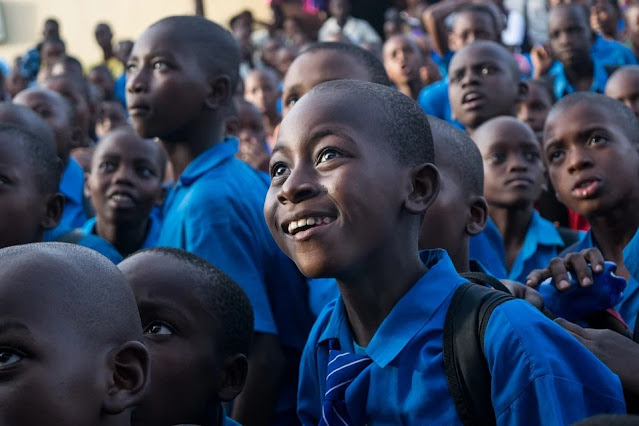The Complete Guide to Solutions to Challenges Facing Education in Africa
As education in Africa continues to grow, so do the challenges. The greater the number of students, the more teachers are needed to meet the demand.
However, this isn’t enough. Some countries also need better administration and management of educational institutions as well as more investment in infrastructure.There is no one indicator that can provide insight into what is happening with education in Africa. There are many challenges facing the education sector in Africa but it's worth mentioning that there are also many successes at hand too.
Africa's Worst Educational Challenges and How They are Being Addressed
Africa is a continent with a high level of education inequality. While some countries have made significant progress, others are still struggling to provide basic access to education.
One of the most pressing problems in Africa is that many children do not have access to schools and universities. This leads them to either start working early, or going through an informal school system, which is often based on rote memorization and little else.
A lack of qualified teachers also contributes to a drop-out rate of 50% in some countries - without teachers who can actually teach well, there is no chance for students to succeed.
In recent years there has been an increasing focus on how African nations can catch up with the rest of the world in terms of educational achievement."
Education in Africa is hindered by a number of challenges and one of the most pressing ones is that there are not enough schools or teachers to accommodate all children. This has prompted the African Union to introduce the Education 2030 agenda, which aims to have universal access to basic education by 2030.
10 Solutions to Challenges Facing Education in Africa
The article will be used to discuss the challenges facing the education system in Africa and to propose solutions for these issues.
African countries face many challenges when it comes to education. For one, there are not enough university degrees being given out to African citizens. For two, there are not enough jobs available in the region to provide opportunities for people with university degrees. Lastly, university fees are too high for many Africans, making attending school an impossible dream for some.
The education system in Africa faces a lot of challenges. These more than ten solutions will help to solve some of the major problems that the education system is currently facing.
One solution would be increased government funding of universities. Another possibility is lowering tuition fees at local universities so that they are more accessible to poorer students. Yet another solution would be creating more job opportunities in Africa so that graduates can find work without having to leave their country of citizenship afterwards.
In Africa, several challenges face the education system. These challenges include a lack of funding, lack of qualified teachers, and a lack of students. Some solutions to these problems might be to train more teachers and make sure that they are qualified in their fields. There is also a need for more scholarships and grants for students in Africa. Another way to solve this problem is by providing computers to universities so that they can provide higher education opportunities for their students.
1) Invest in teachers and equip them with quality and relevant training:
2) Expand access to quality educational materials:
3) Make classrooms more conducive to learning:
4) Introduce new technologies and tools for interactive learning:
5) Promote lifelong learning:
6) Adequately fund education infrastructure and services:
7) Encourage female participation in STEM fields:
8) Improve teacher-to-student ratio in primary school classrooms:
Understanding the Issues that African Governments are Facing when it Comes to Education
For centuries, the education systems of the African continent have been plagued by institutionalized racism, sexism, and classism. This has led to an existence of educational inequality where there are discrepancies in access to education and quality of education. Furthermore, there is a lack of skilled labor. These issues are all interconnected and they must be addressed holistically for there to be any progress made in improving the quality of education on the African continent.
How to Improve Teaching Quality Across African Countries?
There are several factors that have contributed to the lowering of teaching quality in African countries. However, there are many ways in which these factors can be tackled in order to improve teaching quality across African countries.
The following are some of the ways that have been proposed for improving the teaching quality in Africa:
• Improving Teaching Skills
• Better Training for Teachers
• Improving School Infrastructure
• More Money for Physical Education
Conclusion: The Future is Bright for African Students
The future is bright for African students who are specifically interested in STEM fields. The African continent has been at the forefront of technological innovations and its place in the world is growing more and more every day. Africa’s sheer size means that it will be home to many of the next global innovations, which means there will be plenty of opportunities for Africans to take advantage of.
Author’s Bio:
Gillian Ward is a qualified and experienced academic writer, with several years of experience in writing assignments. She has assisted hundreds of students from all over the world with their papers and other school work. If you’re a student looking for a reliable assignment writing service, then she can help! She is an expert at understanding the requirements of your assignment and will write it according to your specifications. In addition, she offers complete confidentiality to all her clients.




Comments
Post a Comment